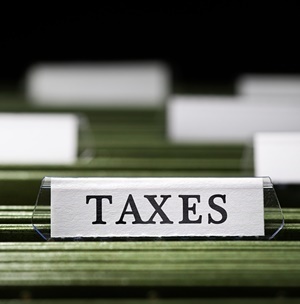
A panel appointed to review the list of zero-rated items has recommended that white bread, cake flour, white flour, sanitary products and school uniforms be added to the list. Panellists at the Tax Indaba debated possible options to couple with zero-rating to ensure targeted relief for the poor and low-income households.
“There’s no doubt the VAT system is a regressive system and that the VAT increase does impact the poor on a much bigger scale than higher income households,” said Gerhard Badenhorst, a director in the tax and exchange control practice at Cliffe Dekker Hofmeyr.
Free distribution
“VAT is a very blunt instrument to achieve equity in the system, and it could perhaps be better achieved through government social expenditure programmes” said Badenhorst.
“The panel recommended that one look at enhancing the national or schools nutritional programme, increasing social grants and increasing unemployment insurance fund benefits. Specifically with regard to sanitary products, the panel strongly recommended that instead of zero-rating, or at least coupled with zero-rating, the products should be distributed free of charge to poor communities and also to schools and clinics,” he said.
“Zero-rating has a place, but in essence having a list of zero-rated items still remains untargeted subsidy, where the wealthy benefit more than the poor because they consume more, and thereby making VAT more regressive,” said Annelie Giles, tax manager at ENSafrica.
Social grant beneficiaries zero-rated
Giles responded to suggestions about increasing cash transfers to social grant beneficiaries.
“Instead of increasing the cash transfers, where you have this issue of overcompensating some and undercompensating others, what if we link zero-rating to the social grant system, and we do that by using the social grant card that will allow the person at point of sale to get to zero-rating on all their items?” suggested Giles.
“I know this is a bit of a stretch, but essentially you move away from that defined list, which limits you. Then you start looking at more targeted interventions because now what it means is that it doesn’t matter what is in your basket at point of sale, you will get everything zero-rated and limited to the social grant amount so you can still limit the cost to government.
“The benefits of doing that is there is no mechanism for the wealthy to benefit because it’s not available to them. It’s no mechanism for the supplier or the producers to capture the benefits of zero-rating because it’s only at point of sale,” she said.
Regulating prices
Mbusi Mthwane, a tax manager at SNG, suggested that prices for certain foods be regulated across the entire country.
“Technically it is in good spirit to give relief to the poor by zero-rating certain items that are essential to them. However, the bigger question is: How do you then ensure that relief in real terms is transferred to such people? We have a wide range of manipulation within the market that can really take away the intention of zero-rating a product for the poor and take it to another scale.
“We can’t be happy about zero-rating a product without putting measures in place to make sure the relief is given to the intended recipients,” said Mthwane.
Zero-rating ingredients
Mthwane spoke about the possibility of the ingredients for an essential food product being zero-rated as opposed to zero-rating the final product.
“Why don’t we look at the ingredients that are making the product and make sure these are zero-rated during the production process? The final product is zero-rated but what makes the product is not zero- rated,” he said.
Zero-rating based on geographic areas
Giles explored the possibilities of giving relief to low-income households through zero-rating school necessities.
“On the issue of schools, we need to think broader than the current list and current restrictions because, for example, we already know which schools are in low-income areas. If we are able to provide benefits to specific schools in low income areas, why not let everything needed for learning be zero-rated? Why limit it to school uniforms? Why not on school fees? Based on the geographic areas in which schools are located, you could allow all school items to be zero-rated,” suggested Giles.
Do you think we should have more zero-rated items, or should social grants and benefits be increased?
SMS us on 35697 using the keywords ZER0 RATED and tell us what you think. Please included your name and province. SMSes cost R1.50




 Publications
Publications
 Partners
Partners








